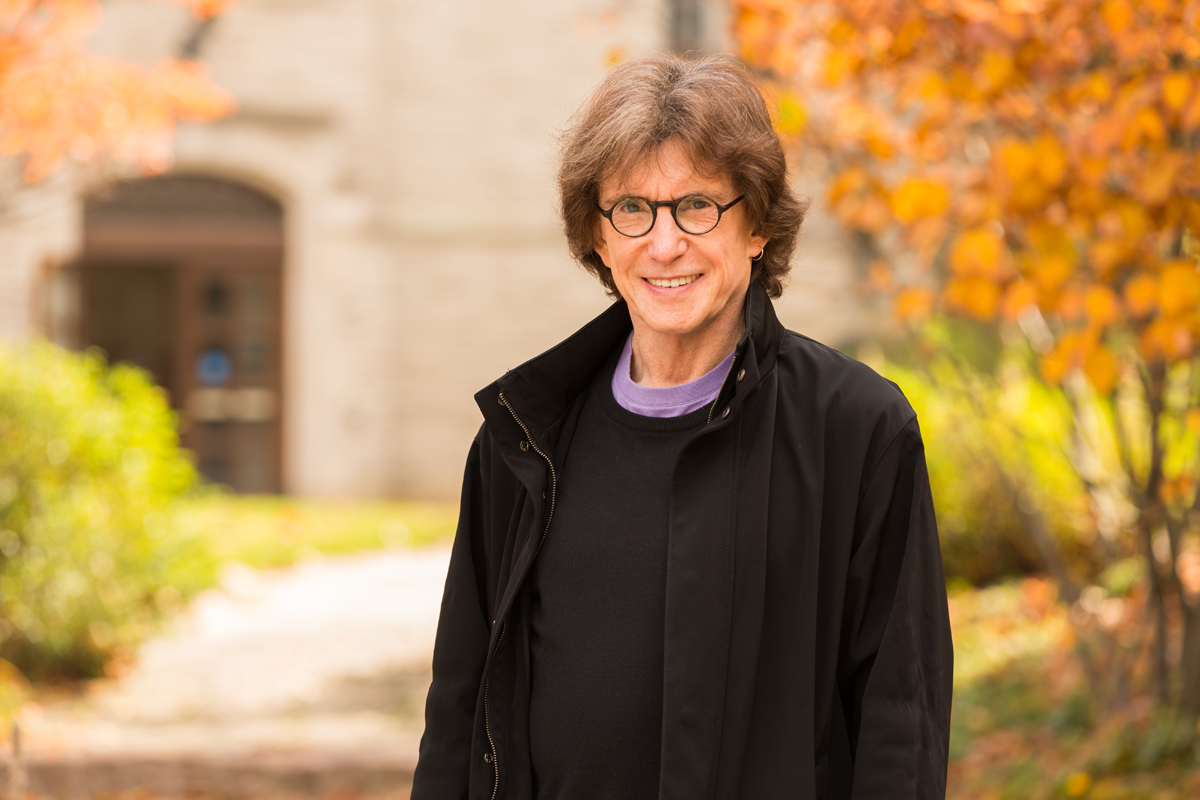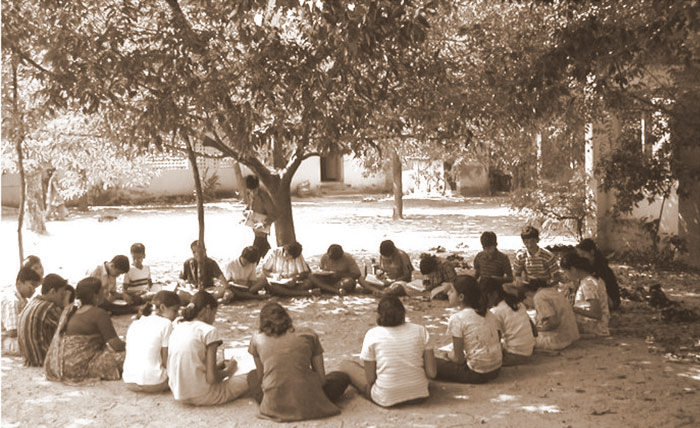For years, critical scholars like Paulo Freire, Henry Giroux, Michael Apple engaged in a radical kind of pedagogy, a ‘Critical Pedagogy’ to dissolve the hierarchical power structure of societies. But with the rise of neoliberalisation, privatization, and public-private partnership, this entire discourse has been pushed backward through the tools like differentiated policies and parallel resource materials and political ideologies. However, several well-informed scholars are still working in the same area and within the fixed structures and are trying to sustain their critical consciousness.
In this article, I explore the idea of knowledge, power and critical pedagogy in the school curriculum. I interviewed a school teacher and also got a chance to analyse some of the teaching-learning materials used by her. She teaches social science to 6th and 7th standard in a private school in Delhi. The questionnaire was structured around the teaching-learning materials, pedagogy, day-to-day challenges faced by the teacher, her own opinion over textbooks and her subject.
Why Henry Giroux’s ‘radical pedagogy’ is significant
Radical pedagogy, according to Henry Giroux is a liberatory force. It goes beyond institutional schooling and during this interview, I realized that the teacher herself is aware of the sensitivity of certain issues and the practical approach of her subject. As she herself said, “I feel that social science has a lot of scope for discussion”. Many times, she has tried to engage students in a meaningful dialogue, for instance when students located ‘oppression’ happening around them as the following instances of caste discrimination were discussed. She told students the story of Ambedkar, the one where he and his siblings went to meet their father and had to face untouchability. In her own words, she shared that, “This story and discussion made them realize the depth of the issue as earlier they were like “I can’t see any problem with the system”. Another example would be gender-based discrimination in the history textbook that she pointed out. The history book discusses different rulers and it covers only male rulers with a slight mention of Razia Sultan in a small reference box on the side. She searched more about female rulers and the societal challenges they faced and had a discussion in the class about the same. She also gave this question in the worksheet about “how nowadays females face backlash from society when they are at a higher position”. Instead of such instances that dialogue is not going anywhere from there. The teacher, as she herself said, “I think any more expectations like behavioural changes and behavioural applications would be too much”. However, radical pedagogy is all about bringing change into the hierarchical power relation in society. So, the teacher is teaching students about the social evils but this will not come under radical pedagogy.

The key role played by critical consciousness
Critical consciousness, according to Giroux, ‘challenges all aspects of daily life and explodes the reification of thoughts itself’ (Winkler B.S., 1984). It is about challenging our faiths to reveal truths hidden under cultural beliefs and societal fix structures, as quoted, which leads to demystification reconstruction, and action for social change. (Winkler B.S., 1984).
In our society, children are kept away from sex education, especially during their school time. Even though sexual orientation is not something that comes after 18 years of age and this is one reason why maximum children got bullied not only by their peers but also by their teachers. During the interview, the teacher shared an instance where she faced a challenging situation;“There is a chapter in political science on equality and there is a definition on how we should not discriminate against anyone based on their gender, caste, class, and sexual orientation. so, when I was teaching that chapter students asked me what is sexual orientation…so basically it includes the LGBTQIA+ community but I was unsure would 6th class students understand and accept that or not. although I still try to explain that a person can get attracted to anyone like a boy can love boy also and as I said that students said “chheee!” I got so stunned and I just moved onto the next topic. Sometimes you don’t know how they will react. Those reactions can be really challenging plus there is also little fear of parents’ reactions as well.”
When students asked about sexual orientation, they were trying to know the unknown truth. Although at first, the teacher tried to explain but when students’ reactions were contradictory (which was their internal inertia towards the information), she held herself back. It was her first attempt to discuss something like this, it could have been better formulated but her efforts in the classroom are appreciable. If it would have a critical pedagogy approach, the teacher would have stayed to her stand and scaffolded the students to challenge their knowledge of the social world. Only opportunities like these could encourage children to push their boundaries.
The roles of the school and the teacher
According to Giroux, the role of school and teachers is to create spaces and resources to develop critical modes of pedagogy. According to the teacher, the school only focuses on completing the syllabus on time and never encourages them to teach in a particular direction like moral or critical. Even the workshops organised for the in-service training of teachers were randomly chosen by the school. As she herself pointed out “the school just randomly chose which teacher would go to which workshop. I am saying it’s random because I have also attended maths workshop and maths is not even my subject”.
On one hand, it is worrisome since it shows the narrow objectives and ideology of school towards knowledge but this also means that teachers are not restricted so they are free to choose critical pedagogy. However, another challenge faced by them is parents’ reaction. Following is an instance shared by the teacher, which highlights the same;
“I feel that social science has a lot of scope for discussion but sometimes it is challenging not because of diversity in their social norms and culture but their parents’ political beliefs and ideas interrupt and critique my pedagogy. For example, I was teaching a chapter on Akbar and it had all the good deeds done by him and other Mughal rulers but that evening a parent of one of the students called and, in a way, scold me that how can I teach the ‘good deeds of Akbar’, the parent said that Akbar was a dacoit, thief, cruel king and I had to tell him that as a teacher I cannot teach any bad thing about any ruler and I have to stick to the textbook only. At the end of that conversation, it was evident that he was disappointed.”
This is just one example of the daily criticism and scrutiny faced by the teachers when their pedagogy got challenged by parents’ political and ideological beliefs. In an environment like this, ensuring critical pedagogy is much more challenging for the teachers. In such a situation, schools can make an effort to set a dialogue towards alternate school of thought with parents.
Teaching-Learning Materials(TLM) in the Classroom
In TLMs, the teacher uses extra books (private publications), she also uses audio, visual aids, newspapers, school-published handbooks and self-made worksheets also. The school has also published its own handbooks which are chapter-wise worksheets. The handbook also has pictures and related activities. Questions are arranged in the same sequence as the concepts given in the textbook and at the end, there are rubrics. Those handbooks are just a simplified representation of NCERT and if one observes them closely then one will realize that those handbooks are a school-produced parallel material for teachers and students. However, the worksheets made by the teacher are giving some space for children to think over sensitive issues and push them to search for other resources. But still the aim is to get more correct answers and hardly anything more than that. In the appendix, some of the worksheets (shared by the teacher) are attached (with her permission).
Textbooks play a very important role
Textbooks, nowadays play a key role in teaching-learning processes. To know-how, according to the teacher, textbooks help while teaching I also asked a few questions related to the same. Following is her response;
“In subjects like Geography I feel that yes NCERT is truly supporting but in subjects like history I feel that many important topics have just not got enough attention and space…they just touched it and went ahead. Chapters covering medieval history in 6th grade, have a small box where they are discussing the Varna system, basically the caste system. There they just introduced it and posed a question in the end “why do you think that people opposed it?” Now the caste system is so deep, it can take even a full chapter. How can they just finish it in a box? I took a full class discussing the caste system, I told them Ambedkar’s story, the one where he and his siblings went to meet their father and had to face a terrible experience of Untouchability. This story and discussion made them realize the depth of the issue otherwise earlier they were like “I can’t see any problem with this system”.
But if you notice in the geography book. There is a chapter on rural livelihood and there they took up 4 case studies. And all 4 are different and they explained the story of a rickshawala with equal details comparing to the story of an engineer… our students also did a role play of these 4 case studies. That was a very interesting and enriching discussion.”While analysing critical pedagogy it is equally important to see how the textbooks are giving the space for it. The teacher’s response here is very important and helps to understand how NCERT books ignore several sensitive topics.
Schools and teachers often call themselves progressive. They might be to some extent because they sometimes make children aware of sensitive issues and have many activities to teach their subjects but they aren’t critical, since the aim is not to reform society. This is not a praxis approach to education. Whenever students face some conflicting situation, they are kept away from exploring them. They are taught to gain good marks in exams and to get into eminent colleges but there is no emancipatory aim of such education. Students out of such systems know about issues like social justice, economic equality, human rights and sustainable environment but they just know them, they seldom take any action to achieve the same. Such education is about the real world but in a disconnected fashion.
Riya Jain is pursuing Masters in Education from Ambedkar University.Her interest areas are education, policies, curriculum, childhood and teaching.













